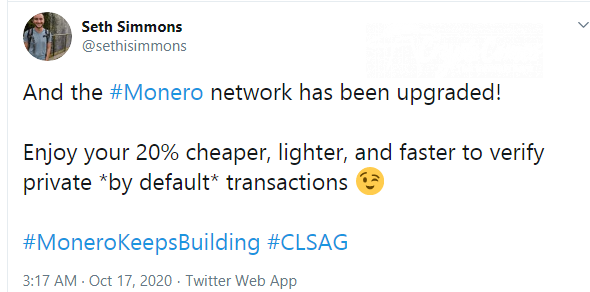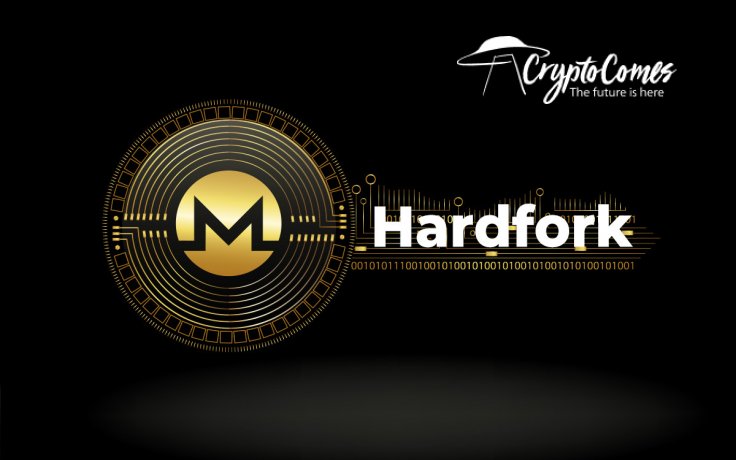Today, Oct. 17, Monero (XMR) privacy-focused protocol contributor Seth Simmons confirmed that the network hardfork was activated successfully. Meanwhile, one more important technological advance, XMR atomic swaps design, is taking shape.
Monero (XMR) upgrades for fast and secure transactions
According to Mr. Simmons, the significant network upgrade succeeded as projected. Now, Monero (XMR) blockchain processes payments faster since the transaction size has been reduced.

At 8:00 am UTC, the success of the hardfork was confirmed by the official Monero (XMR) Twitter account. The updated protocol now verifies transactions through a brand new linkable ring signature plan—a compact linkable spontaneous anonymous group (CLSAG).
This upgrade resulted in an impressive reduction in transactional weight. One of the XMR ideologists, Dr. Sarang Noether, calculates that transaction size is dropping more than 25 percent from 2.5 kB to 1.9 kB.
Reduced transaction size allows Monero (XMR) to showcase a whopping 20 percent improvement in signature verification. As covered by CryptoComes, this breakthrough is activated amidst the splendid rally of Monero (XMR) blockchain usage metrics.

According to community estimations and third-party explorer statistics, the net transactional volume, hashrate and daily transaction number simultaneously reached all-time-high levels.
Atomic swaps with XMR are on the horizon
In his celebratory tweet, Mr. Simmons clamed that Monero (XMR) developers have no plans to rest on their laurels:
Monero keeps building.
The implementation of atomic swaps (peer-to-peer trustless cross-asset interactions) may be the next major novelty for the Monero (XMR) blockchain. On the same day, Monero (XMR) community-driven resources reported that the entire amount of funding for atomic swap realization has risen.
It took only four days for 128 Monero (XMR) enthusiasts to raise 2,727 XMR, or more than $330,000, required for atomic swap realization. With AS released, Monero (XMR) tokens will be easily exchanged for Bitcoin (BTC) in a decentralized manner.
In turn, this feature will boost the liquidity inflow into Monero (XMR) trading with no regard to the position of centralized exchanges.
Recently, Litecoin's Charlie Lee slammed Monero (XMR) for a limited number of listings that causes shortages in XMR liquidity.




